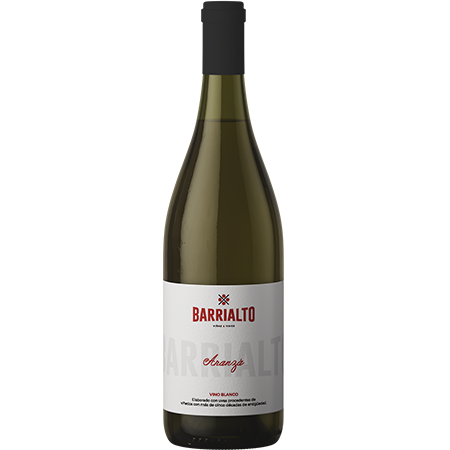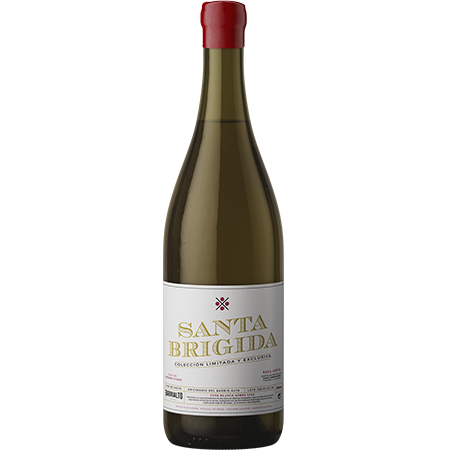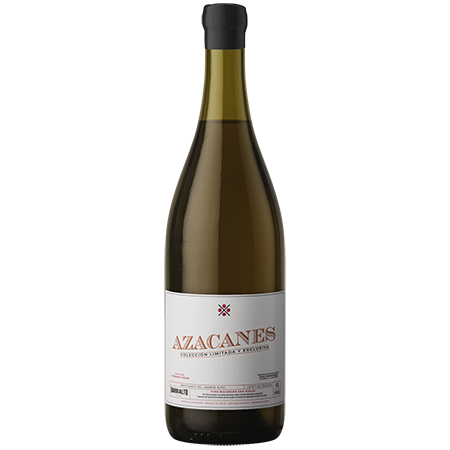Barrialto
Photo by Yolanda Ortiz de Arri and courtesy of Spanish Wine Lover
Rafael Rodríguez, with his Barrialto micro-winery in a converted historic tavern in Sanlúcar’s Barrio Alto sub-zone,
represents an exciting and important evolution for unfortified white wines from Sherry country in Andalucia. Rafa, who is also an architect, descends from three generations of grape growers in Sanlúcar de Barrameda, where his grandfather was an almacenista. The most groundbreaking aspect of the vision for Barrialto is his dedication to exploring and exalting the region’s historic terroir through his organically-farmed vineyards. Rafael Rodríguez is a genuine Mayetero, a local term for a viticulturist who makes his own wines by hand. Barrialto produces natural, artisanal white wines from old-vine palomino grapes without fortification, starting with excellent work in the vineyard.
Rafa began working in wine in 2009, and in 2016 he joined the Mayetería Sanluqueña, a pioneering group of five young winemakers, including the like-minded Ramiro Ibáñez, dedicated to exploring terroir in the Sherry region through unfortified wines. His first vintage of Barrialto on the market is 2018.
Rafa is passionate about his work in the vineyard,
in which he conserves and recuperates old, low-yielding palomino vines, which runs counter to the current norms in the area. In contrast with many other regions in Spain, where old vines are plentiful, in Jerez, old vines are often ripped out because they are less productive than younger vines. He also utilizes the traditional en vaso (goblet) vine training system, another abandoned practice that his grandfather once championed. All of the grapes are hand-harvested, unfortified, and naturally lower in alcohol than the fortified wines of the region. With this artisan approach, Rafa makes extremely small amounts of high-quality, transparent wines, which are exceptionally hard to come by in export markets due to limited allocations.
“We are determined to maintain the Mayetera culture and value the legacies of the different families who have cultivated the vine here for generations, making wines from old vineyards so that they can live on.”
In his tiny cellar inside an old tavern, he finished converting in 2019 in the Barrio Alto subzone of Sanlúcar de Barrameda. He allows each parcel of wine to ferment spontaneously without temperature control using only the ambient yeasts from the vineyard in 500L ex-Manzanilla casks. Each vineyard is fermented separately, respecting each individual terruño, and just a minimal amount of sulfur is used in the process. Transparency and quality are always the goal.
Albariza Soil Sub-types: Tosca Cerrada and Barajuelas
Tosca cerrada albariza is a very hard sub-type of albariza with a slight gray tint with chalk levels around 60% and a cement-like solidity (hence cerrada or closed). When wet, it becomes soft and extremely slippery, and it appears to dissolve. This type of albariza leads to a fine, velvety wine, with a bit more balance and elegance than those from antejoelas albariza soils.
Barajuelas albariza contains the highest level of diatoms and around 50% chalk content. It shows clear horizontal sections of white, layered lines (chalk), sometimes mixed with ochre-colored layers containing iron oxide and clay. The hard, layered structure causes the roots of the vines to work harder if they want to reach the stored water below the surface. This hardship results in lower yields and grapes with a thicker skin and higher concentration of phenolic compounds. The resulting wines tend to be powerful and concentrated, with a savory mineral and saline quality.
Barrialto Aranzá is produced from a small part of a three-hectare, 60-year-old palomino vineyard called La Palma in the Pago Balbaína Baja. The limestone-rich albariza soils in this part of the vineyard are pure tosca cerrada, which Rafa prefers. He says wines coming from this soil have a certain “magnetism,” resulting in naturally balanced wines. Aranzá refers to the traditional agricultural measurement in the area of half a hectare or one Aranzá that the wine is produced from.
Barrialto Sobre Lías Santa Brigida is bottled from a single 500L butt and is a blend of two different albariza soil sub-types. Palomino grapes from Balbaína Baja near Jerez (albariza tosca cerrada soils), are blended with grapes from Maína, near Sanlúcar’, (albariza barajuelas soil). Rafa says that the tosca cerrada albariza lends the blend balance and fitness, while the barrajuela albariza lends a dry minerality and a certain herbal salinity.
Barrialto also makes a small production, skin-contact orange wine called Azacanes, made from bush-trained palomino grapes grown in Pago Maína, near Sanlúcar. Rafa does not use excessive punch-downs; rather, he allows the palomino grape skins to rest gently on the wine, lending a radiant copper hue imbued with elegance and balance.
Each wine Rafa produces is a unique snapshot of a place, time, and soil type in his vineyards in the Jerez region. As a result, the production of these authentic treasures is in the hundreds of bottles, and they are exceptionally limited, coming to the US market in tiny allocations. We are thrilled to support his work as a Mayetero, as it is a key part of the next chapter for this magical region we hold dear to our hearts.



